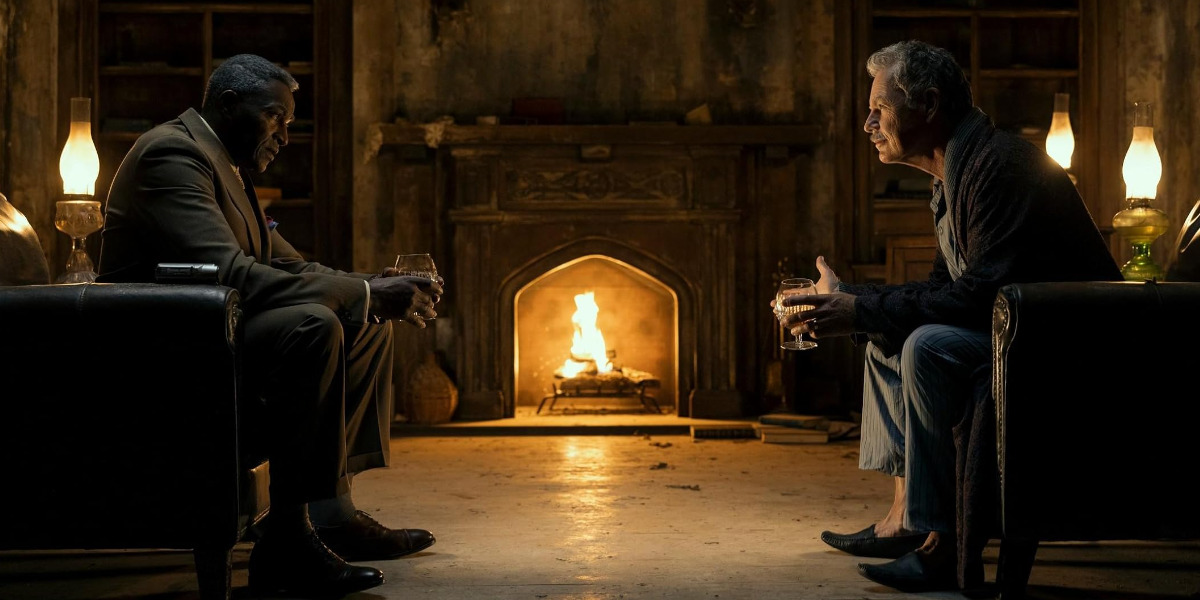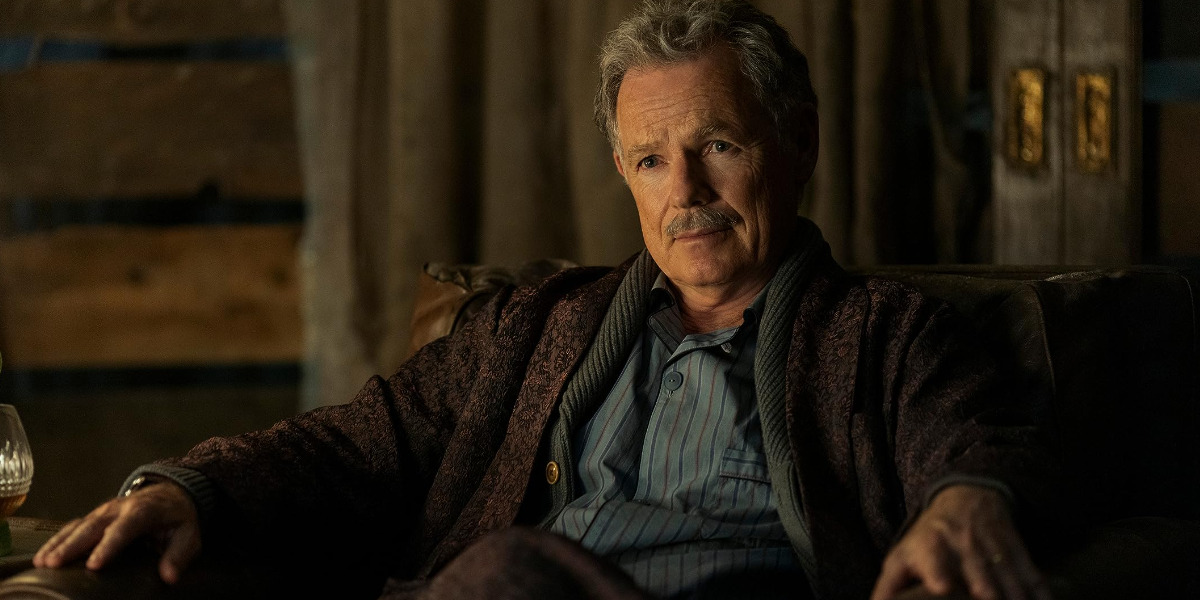‘The Fall of The House of Usher,’ Netflix’s supernatural horror show, unfolds as a narration by Roderick to his former friend-turned-rival Auguste Dupin, wherein the businessman reveals the secrets of the House of Usher. As Roderick shares his and his twin Madeline’s climb to success, he crafts a picture of an ambitious, cutthroat man willing to sacrifice everything to build his empire. In fact, only two weeks before Roderick’s confession, Dupin was leading a trial against Roderick’s pharmaceutical company, Fortunato, which the family was combating from every angle.
Therefore, within the show’s multiple narratives, the juxtaposition of Roderick’s steel resolve to succeed clashes with the jittery man in his childhood home, divulging the secrets he once guarded with everything he had. If you’re intrigued by this character arc and are curious about Roderick’s drastic transformation and motives, here is everything you need to know to understand his character better. SPOILERS AHEAD!
Roderick’s Motivations Behind His Confession
The show opens with Roderick attending his children’s joint funerals at the church. In two weeks, Roderick has lost all six of his children in increasingly uncanny circumstances. Furthermore, his own death looms in the background, harbingered by CADASIL, the same disorder that claimed his mother’s life in his youth. As such, over the course of this tragedy, Roderick is forced to face a truth he has long buried in the back of his mind.

In his youth, Roderick, like his twin, Madeline, didn’t grow up with much to his name. Their father, William Longsworth, the wealthy head of Fortunato Pharmaceuticals, refused to acknowledge the twins’ lineage since they were born from a scandalous affair. In turn, Roderick and Madeline’s mother, Eliza, continued to hold a candle for William and raised her kids under strict religious teachings. Eliza died and took William out with her when the kids were in their teens, leaving the Ushers to fend for themselves.
Initially, Roderick, who goes on to marry Annabel and have two kids with her, lives a poor life, unable to care for his family properly. Worse yet, his financial underprivilege foils his attempts at a grander life. Thus, his future hinges on an uncertain night when a wicked opportunity strikes and Madeline helps him brew up a plan of deceit and lies to earn a spot at the proverbial table.
That night, in 1979, Roderick meets Verna, a mysterious woman wrapped in intrigue who offers the Usher twins the key to their every dream. The Ushers are weathering out the night in Verna’s bar, building an alibi to evade suspicion of Griswold, Fortunato’s new CEO’s murder. Yet, they find something infinitesimally more tempting inside the bar’s supernatural walls.
Verna offers Roderick and Madeline something they have been lacking their entire lives: privilege. In her deal, Verna extends the gifts of luxury, which presents an escape from their perpetual poverty and a life free of legal consequences, which they are running from at the moment. Therefore, with an impossible-to-pass deal on the table, Roderick and Madeline sign their bloodline’s future away and agree to Verna’s terms.
According to the deal, Roderick and Madeline will live long, privileged lives, but their bloodline will die when their own death arrives. Consequently, in the present day, when Roderick’s children start dropping dead, it’s because Roderick’s own demise is nearing. As a result, his bloodline has to end. Although Roderick tries to stay in denial for a while, he realizes the truth that his kids are dead because of a deal he made as a greedily ambitious young man. Worse yet, as the last remaining Usher dies, it seals Roderick’s fate.
Therefore, when faced with impending doom and his own personal reckoning in the form of Verna, Roderick has no choice but to call Dupin and confess his sins. In his last hours, Roderick’s kids haunt their father, appearing as gruesome apparitions in front of his eyes, reminding him of the hurt he inflicted on his own flesh and blood. Moreover, they want Roderick to disclose the actual truth behind their deaths so that the world will know what really happened to them.
As such, the apparitions share their stories with Roderick, telling him private details about their individual isolated deaths so that the man can relay them to Dupin later. Afterward, they hold their father to his word by ensuring he never strays and tells their entire story. Likewise, since Verna demanded the confession, Roderick isn’t at liberty to deny it. Alternatively, Roderick himself can feel his destined death approaching. Perhaps, when faced with the truth of his nearing mortality, Roderick, who grew up under a devout Christian mother, wants to repent. Thus, he confesses.
Read More: Is The Fall of The House of Usher Based on a True Story or a Book?


You must be logged in to post a comment.